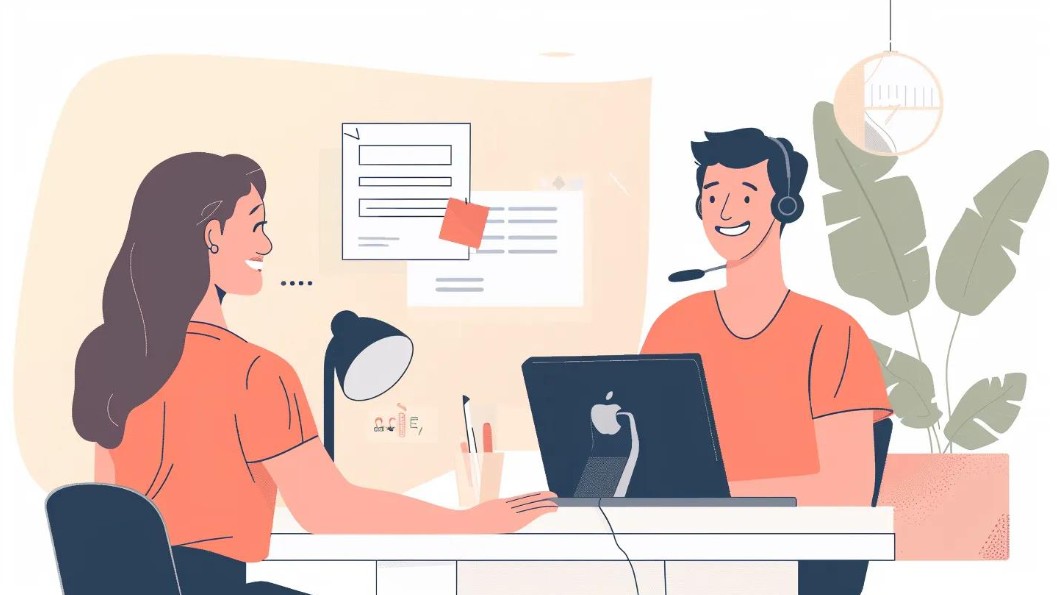It’s Not Just Service, It’s Psychology
Let’s be blunt: most customer service feels the same. You call, someone reads from a script, and you leave the conversation wondering if they actually understood you at all. Maybe the issue gets fixed, maybe it doesn’t, but the interaction itself? Forgettable at best, frustrating at worst.
The truth is, people don’t want the same kind of service. Some clients want speed, others want details. Some want to feel cared for, others just want the bottom line. If your team can’t tell the difference, you’re losing trust and potential business every single day.
That’s why B.A.N.K. is a game changer.
It gives your team a framework to recognize exactly who they’re talking to and how that person wants to be treated. Suddenly service isn’t guesswork but instead It’s precise, personal, and powerful.
Key Takeaways
- Customer service isn’t universal. What works for one client may push another away.
- B.A.N.K. provides clarity. By recognizing Blueprint, Action, Nurturing, and Knowledge types, support teams can meet clients where they are.
- Better alignment means better outcomes. Tailoring communication leads to faster resolutions, stronger trust, and higher client retention.
- The system is practical. This isn’t abstract theory; it’s a repeatable framework that can be applied in every interaction.
Where Traditional Customer Service Training Falls Short
For decades, customer service training has revolved around the same system. You follow the script, keep a polite tone, stick to company policy, and move the client along as quickly as possible.
That approach may have worked when clients had fewer choices and lower expectations, but in today’s market that just doesn’t cut it.
The problem isn’t that teams aren’t trying, it’s that the model itself is outdated. Scripts create robotic interactions, time targets encourage speed over understanding, and rigid policies make employees sound more like gatekeepers than problem-solvers. Clients don’t just notice that, they resent it.
In a world where competitors are only a click away, “pleasant but generic” support doesn’t build loyalty. If anything, it highlights how replaceable your service feels.
What people want now is responsiveness, empathy, and solutions that make sense to them. Traditional training doesn’t prepare teams for that, but B.A.N.K. does.
Want to learn more? Contact The CodeMasters and equip your team with skills fitting of today’s expectations.
How Each B.A.N.K. Code Expects to Be Treated as a Client
Every client walks into a conversation with their own definition of “good service” and what it entails. The challenge is that those definitions aren’t the same and you can’t serve from only one perspective.
Here’s how each B.A.N.K. personality type shows up in client interactions, and what they expect from you or your team:
Blueprint (Structure and Security)
Blueprints want clarity, predictability, and respect for rules. If your service rep is vague or improvises, they’ll lose trust instantly. Detailed steps, clear timelines, and documented solutions reassure them that they’re in good hands.
Action (Freedom and Excitement)
Actions don’t want to sit through a policy lecture. They value speed, energy, and options that keep things moving. Get to the point, skip the unnecessary details, and make them feel like they’re winning by choosing your solution.
Nurturing (Relationships and Connection)
For Nurturers, how you treat them matters as much as what you do. They need to feel cared for, not processed. Empathy, genuine listening, and acknowledgment of their concerns build the trust that keeps them loyal.
Knowledge (Logic and Expertise)
Knowledge clients are analytical. They’ll push for explanations and expect data to back up your answers. Glossing over details will frustrate them, but providing evidence, documentation, and rational solutions earns their respect.
Of course, this is just surface level knowledge. Each personality type also reveals itself through tone, body language, and subtle reactions during a conversation. The more your team learns to recognize those signals and adjust in real time, the more natural and effective their service becomes.
At The CodeMasters, we teach you how to recognize and respond to every interaction with precision. Schedule a training with us today, and give your team the advantage in every sale.
Putting B.A.N.K. Into Practice
It’s one thing to understand the personality types. It’s another to actually use them when a client is on the line, frustrated, and waiting for an answer. This is when most teams freeze because they know the theory, but they don’t know how to apply it in the moment.
So let’s make it simple. If you can train your ear to pick up on a few key cues, you’ll know exactly how to steer the conversation.
Listen for value words
The language a client uses is often the biggest giveaway of their personality type. A Blueprint might ask about the “process” or want to see “the steps,” which tells you they’ll respond best to structure and clarity. An Action client, by contrast, is all about speed. They’ll cut right to “How fast can this get done?” or “What’s the quickest option?” Nurturers lean into people-oriented language, asking “Who can help me?” or “Can you walk me through this?” Knowledge clients, on the other hand, push for logic, data, or reasoning behind the solution.
Once you notice the words they default to, tailoring your response becomes much easier.
Adapt your pacing
Everybody moves at a different rhythm. Knowledge clients want you to slow down, explain carefully, and leave room for questions. Action clients get restless if you linger, so the quicker you cut to the bottom line, the better. Blueprints appreciate calm, steady delivery with clear order and predictability. Nurturers prefer conversations that leave space for dialogue and emotional reassurance.
Matching your pace to theirs communicates respect for how they process information and makes the exchange feel natural instead of forced.
Shift the focus
Nurturers put the highest weight on feeling understood and cared for. Blueprints want proof that you’ve stayed within the system and followed the rules. Action clients judge you by how quickly and confidently the problem gets resolved. Knowledge clients measure the strength of your solution by whether it actually makes sense and is backed by logic.
Keeping their priorities front and center prevents you from delivering answers that simply fall flat.
Empower your team
Scripts can only go so far. Yes they’re a starting point, but they’re not a strategy. The real breakthrough comes when your team can identify personality types on their own and adapt on the fly. That flexibility allows them to move beyond canned lines and start building real, trust-based connections.
When a representative can confidently shift gears in the middle of a conversation, service stops being routine and starts being memorable.
None of this requires reinventing your process either. It’s about helping your team recognize patterns and respond in ways that feel personal instead of robotic, and that’s where B.A.N.K. takes customer service to another level.
Schedule a session with The CodeMasters and equip your team with the tools to connect faster and serve smarter, every single time.
The Results of Personality-Driven Service
Customer service isn’t just about solving problems; it’s about building relationships that last. When your team uses B.A.N.K. to guide those interactions, the payoff goes far beyond fixing today’s issues, but actually creates the kind of loyalty that keeps clients coming back tomorrow.
Conversations become smoother, and problems get solved faster because clients don’t have to repeat themselves or fight through miscommunication. With every efficient resolution, frustration drops on both sides.
At the same time, satisfaction rises and the clients who feel genuinely valued are the ones who take the time to leave positive feedback, renew contracts, and tell others about their experience.
Over time, those interactions build a level of loyalty that no script or policy could ever produce. Clients stick around not just because you fixed their problem, but because you did it in a way that matched how they think and what they value. While the client wins, so does your team. They develop the confidence to read situations and adapt on their own. That empowerment translates to better morale, stronger performance, and lower turnover.
The bottom line is simple: the difference between average service and exceptional service isn’t how friendly your reps sound, it’s how aligned they are with the person on the other end of the line. That’s exactly what B.A.N.K. makes possible.
Call The CodeMasters today and we’ll show you how to take your service from average to exceptional.
From Transactions to Connections
People Also Ask
Q: How does personality training impact first-call resolution rates?
A: By tailoring communication to each client’s personality, reps resolve issues faster and more effectively. Instead of repeating explanations or escalating calls unnecessarily, they get it right the first time, which improves metrics and client satisfaction.
Q: Is B.A.N.K. only useful for sales teams, or does it apply to customer service too?
A: While B.A.N.K. was designed to boost sales, its power lies in communication. That makes it just as valuable in customer service, where understanding a client’s values can turn routine support into a loyalty-building experience.
Q: What industries benefit most from personality-driven client support?
A: Any industry that relies on client interaction can benefit, from financial services to healthcare to tech support. Wherever communication plays a role in client satisfaction, B.A.N.K. gives teams a framework to adapt and succeed.


Leave A Comment